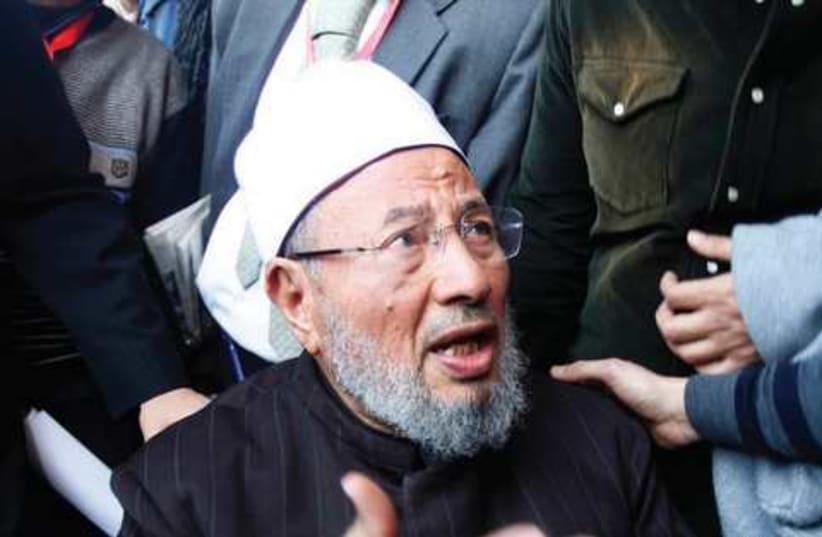It is worth noting that in Islam, as in Judaism, the issue of “possible theft” is a very serious crime. Not long ago, a Palestinian teacher from East Jerusalem told me that one of his students in high school, a particularly devote Muslim, asked him if he could charge the battery to his cellphone in an electric outlet in the class – the student was concerned that he would be stealing electricity from the school (which, incidentally, belongs to the Municipality of Jerusalem).The story is making its way around East Jerusalem – and many people are taking it very seriously.Religious rulings against Israel, such as those made by Al- Qaradawi, are published and well known throughout the Arab world and in Israel as well. But the rulings that permit contact and agreement with Israel receive much less attention.The most important of these was proclaimed by the Mufti of Egypt Jaad al-Haq in support of the 1979 peace agreement between Egypt and Israel. Al-Haq, who at the time was the head of Al-Azhar, the most important religious academic institution in the Arab world, was viewed by the public as a “court mufti,” – that is, as one who supports the policies of the leadership; yet his ruling was written in depth and well argued, and has served as the foundation for other Islamic scholars’ responses to the State of Israel.This has been an especially important issue for religious scholars who have had to justify and explain the peace agreement between King Hussein of Jordan and Israel in 1995 and the Oslo Accords between Israel and Yasser Arafat’s PLO in 1993. The need for religious interpretations and fatwas that permit agreements became even more crucial following the Saudi Initiative of 2002 (which subsequently became the Arab League Peace Initiative. This initiative not only outlines agreements with Israel, on condition that Israel retreats to the 1967 borders and solves the refugee problem, but even more significantly, it calls for complete normalization of relations with Israel.These pragmatic rulings rest on the argument that if they cannot overcome Israel – then the Muslims must do the best that they can for the Muslin nation in peaceful ways. “This is essentially support for the ‘land for peace’ principle,” Reiter says. And this position is becoming increasingly acceptable among the Muslim Brotherhood in Egypt, whose representatives are no longer demanding that the peace agreement with Israel be abrogated.And it is certainly the position of Hamas. In other words, liberal Muslim interpretations state that there is no point in maintaining an “all or nothing” stance and that the Arab nation should strive to get what it can, in exchange for agreeing to a cease-fire – a hudna, according to the diplomatic precedent set by Muhammad.In Muslim thought, in the positions that the Arabs take, and, most certainly, in the Palestinian national arguments, the status of Jerusalem is paramount. Only recently, the Arab world celebrated Muhammad’s fabled night journey to the Al-Aqsa Mosque to bring the Koran down from the heavens. The story is told in the Koran and the place is identified with Jerusalem. Muslims pray in the direction of the Al-Aqsa mosque, the third most important mosque in Islam after Mecca and Medina. They believe that they must do everything to bring this back to Muslim rule – even if it means agreeing to coexist with Israel.When simultaneously reading Reiter’s book and recent headlines in the media, one reaches the conclusion that ever since Obama’s famous speech in Cairo (to which representatives of the Muslim Brotherhood were invited, despite Mubarak’s opposition), the American Administration has been following a very clear route: to encourage and seek connections with moderate Islam.The West, and especially the Americans, still define Hamas as a terrorist movement. But that definition can change, and the first sign of this change is the new relationships between the American Administration and the Muslim Brotherhood.
Redefining fundamentalism
The US Administration’s new relationship with the Muslim Brotherhood could have profound effects on Israel’s relationship with Hamas.
